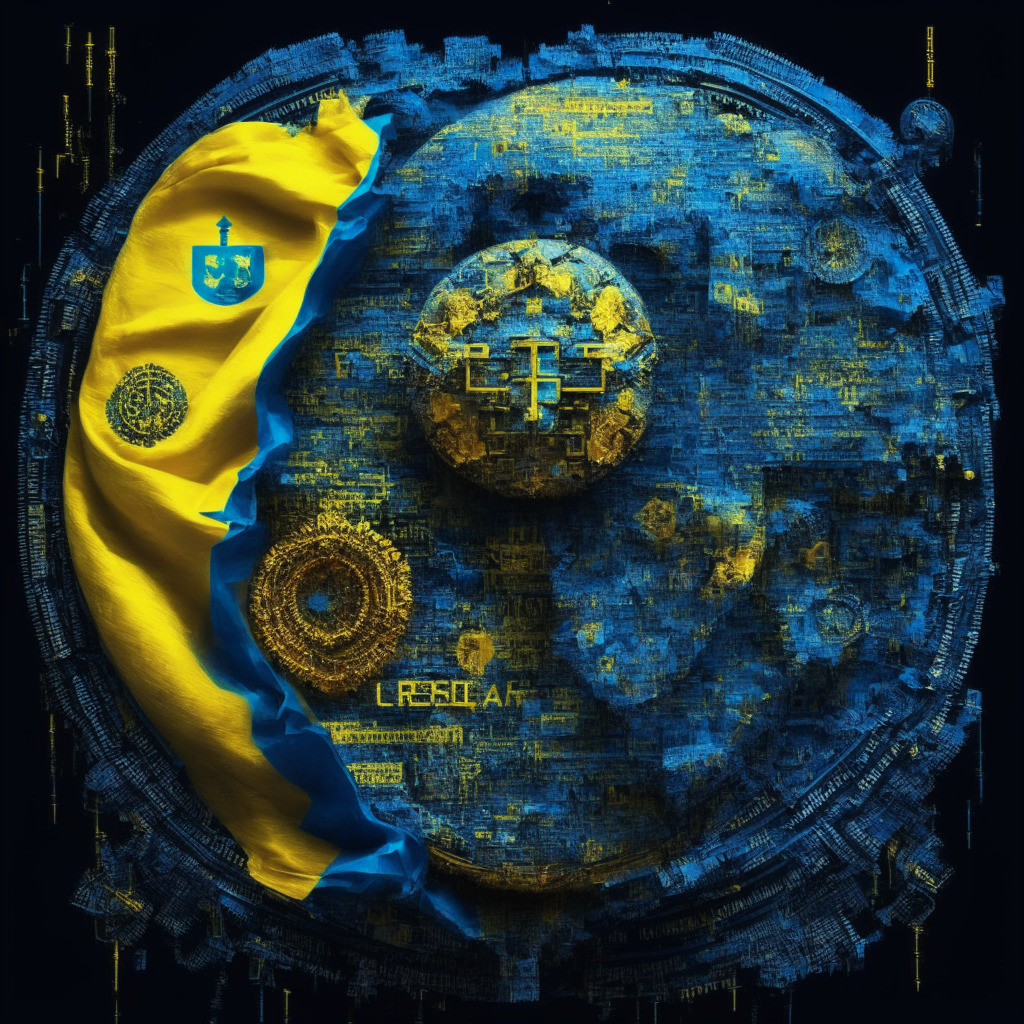“The European Banking Authority is urging an early adaptation of guidelines for managing stablecoins, ahead of mandatory regulations due next year. This includes understanding and implementing the EU-approved MiCAR framework’s measures for good governance and consumer protection. These preemptive actions are designed to reduce potential risks and facilitate effective consumer protection in the rapidly evolving stablecoin market.”
Search Results for: rain
Google AI Training Lawsuit: Clash Between Privacy Rights and Technological Evolution
Google faces a lawsuit for allegedly misusing data, including copyrighted items, for AI training without necessary consent, sparking a debate about internet ownership. A court order could demand explicit user permission for data collection or potentially fine Google up to $5 billion.
UK Treasury’s Provisional Approach to Crypto Regulation: An Opportunity and Constraint
“The UK Treasury plans to exclude ‘unbacked’ tokens from its regulatory sandbox, aiming to balance innovation and consumer safety. Existing regulations are deemed sufficient for volatile assets like Bitcoin and Ethereum, whose regulatory future remains uncertain due to evolving rules for such cryptocurrencies.”
Anticipating the Bitcoin Halving Effect: Prospects for MicroStrategy vs. Rise of Crypto Drainers
The crypto market is speculating the next Bitcoin halving event could boost MicroStrategy’s stock price. Historically, such events caused Bitcoin’s price to skyrocket, but predicting future rally magnitudes remains difficult. Security threats like crypto wallet drainers add skepticism to the digital currency’s broader prospects.
Breaking Down The AI Training Ethical Dilemma: Copyright Claims Against Meta Platforms and OpenAI
Authors Sarah Silverman, Richard Kadrey, and Christopher Golden accuse Meta Platforms and OpenAI of copyright infringement, claiming that their copyrighted content was used without permission for AI training. The lawsuit highlights the ethical boundaries around incorporating copyrighted material into AI technology development and could have significant implications for the blockchain and AI industry.
AI Assisted Brain Tumor Treatment: Revolutionary Speed or Questionable Precision?
Artificial Intelligence tool CHARM is revolutionising the treatment of aggressive brain tumors. Its value lies in its ability to evaluate images quickly, identify genetic profiles of tumors, and provide immediate predictions, contrasting current processes which can be time-consuming. However, there are still hurdles to overcome regarding its accuracy and reliability.
Navigating the Complex Terrain of Crypto-Regulation: A Comparative Outlook
Animoca Brands CEO, Yat Siu, discusses the difficulties North American crypto entrepreneurs face compared to other regions due to macroeconomic and regulatory impacts. However, despite challenges like downturns in cryptocurrency prices and high global interest rates, the crypto industry continues to grow, with more people and smart contracts entering the scene. Siu’s comments highlight the fluctuating global terrain of crypto-regulation and the varying approaches of different region’s regulators.
Blockchain Future: Game-changer or Risky Terrain? A Tightrope Walk in the Crypto World
“Blockchain technology’s decentralization characteristic offers a promising future for data security and transaction efficiency but also poses risks. Its lack of central control can lead to unregulated illicit activities. Despite potential data breaches, the pros of security, transparency, and efficiency outweigh risks as we strive for a balance in using this technology.”
Navigating the High Stakes Terrain of Blue-Chip NFTs: A Venture into Prestige and Uncertainty
“Blue-chip nonfungible tokens (NFTs) have emerged as high value crypto assets, mirroring blue-chip stocks. Successful investment requires deep market knowledge, due diligence, and careful maneuvering. Risks include potential fraud, uncertain legislation, and intellectual property violations; mitigated by research, diversification, and market awareness.”
Fidelity’s BTC ETF Quest: Balancing Regulatory Restraints and Blockchain Promise
“Fidelity Investments makes a second attempt at a spot BTC Trust known as Wise Origin, amidst seven similar fund applications this year. Despite potential risks, they argue for the need of a Spot Bitcoin exchange-traded product, which could protect U.S. investor assets from riskier alternatives. The blockchain future, despite regulatory skepticism, is seen as inevitable.”
Potential Russian Military Coup: How It Could Impact Crypto Market Amid Ukraine Crisis
Ongoing Ukraine war and potential Russian military coup may impact global markets, including crypto. With Russia’s significant role in oil and gas, a civil war could benefit Bitcoin and altcoin prices as perceived safer assets amid uncertainty.
Illegal Crypto Mining Farm Exposed in Ukraine: A Cautionary Tale for Blockchain Adoption
Ukraine’s State Bureau of Investigation (SBI) has exposed an illicit crypto mining farm operating within a state-owned enterprise, Forests of Ukraine, mining over $108,000 and consuming around $41,000 worth of government resources. This crackdown aligns with Ukraine’s efforts to combat “crypto corruption” and emphasizes the importance of implementing effective regulations for the safe and legitimate growth of the crypto industry.
Ukraine’s 18% Crypto Tax Proposal: Balancing Regulation and Market Appeal
Ukrainian regulators propose an 18% tax on cryptocurrency gains starting 2024, with plans to introduce a draft law and grant regulatory powers to the National Commission for Securities and Stock Market and the central bank. The proposed tax has sparked mixed reactions in Ukraine’s crypto community, with concerns about discouraging investors and potential user exodus.
Pink Drainer Hacks: A Wake-Up Call for Crypto Security and the Future of Blockchain
Hacker “Pink Drainer” has reportedly stolen over $3 million from nearly 2000 victims using social engineering tactics and fake journalist personas. Despite a decrease in overall hacking incidents, it’s crucial for individuals to evaluate security measures and exercise caution in the crypto space.
Aligning Ukraine’s Crypto Regulations with EU Standards: Balancing Consumer Protection, Financial Stability, and Market Growth
The National Bank of Ukraine (NBU) is working towards aligning the country’s crypto regulations with European standards, particularly the EU’s Markets in Crypto-Assets (MiCA) legislation. The NBU emphasizes maintaining financial stability, consumer protection, and transparency, while considering Ukraine’s unique legal and financial systems.
Bitcoin Mining: Savior or Strain on Texas Power Grid? Pros, Cons & the Ongoing Debate
A recent paper suggests that Bitcoin mining loads can help mitigate power shortages in Texas if managed correctly. The state faces concerns about the grid’s ability to handle mining activities. Financial incentives and location strategies can enhance grid-supporting capabilities and alleviate reliability concerns, while legislation and collaboration are needed for sustainable solutions.
Unmasking Crypto Corruption: Ukraine’s Challenge to Maintain a Thriving Market
Ukraine’s National Anti-corruption Bureau (NABU) is probing the crypto sector to unmask money launderers in collaboration with the United States Embassy and the US State Department. Aiming to scrutinize cryptoassets, the largest training program in NABU’s history will educate participants on combating cryptocurrency-related crimes and ensure that crypto is no longer a means to hide corruption.
Sanctions Against Binance US Investigator: Impact on Crypto Amid Russia-Ukraine Crisis
Russia expands its sanction list, including Binance U.S. Head of Investigation, BJ Kang, among 500 entities facing travel and financial restrictions. Binance is under scrutiny for reportedly generating high traffic from Russia, raising concerns over compliance with U.S. sanctions amid the ongoing Russia-Ukraine crisis.
Inferno Drainer: How a Scam-as-a-Service Stole $6M and What We Can Learn From It
A scam vendor called “Inferno Drainer” has stolen $5.9 million in assets from 4,888 victims across 689 phishing websites. Specializing in multi-chain scams, Inferno Drainer provides scammers with ready-to-go code in exchange for a 20% cut of stolen funds. Crypto scams and hacks continue to pose a threat, reinforcing the importance of security and vigilance in the crypto market.
Inferno Drainer & Scams-as-Services: The Urgency for a More Secure Blockchain Future
The blockchain community faces a new scam as a service called “Inferno Drainer,” which has reportedly stolen nearly $6 million from crypto users. This incident underscores the need for increased security, vigilance, and collaboration within the blockchain and cryptocurrency sectors.
Whampoa Group’s Digital Bank in Bahrain: Innovating Finance or Destabilizing Tradition?
Singapore-based Whampoa Group plans to launch a digital bank in Bahrain, offering services such as digital asset trading, custody, and management. With backing from influential families and Bahrain’s Central Bank’s conditional approval, this development signals a push toward financial innovation, accessibility, and the growing adoption of digital banking services.
IRS and Ukraine Tackle Crypto Fraud: Balancing Innovation and Market Integrity
The IRS partners with the Ukrainian government to tackle cryptocurrency fraud globally, focusing on Russian individuals suspected of evading sanctions. They will provide training on tracing blockchain transactions for Ukrainian officials using a tool developed by Chainalysis. This increased scrutiny raises concerns for the crypto industry, but Brian Armstrong, Coinbase CEO, argues that blockchain’s transparency deters illicit activities.
From Crypto Mining to AI Training: The GPU Balancing Act and Miner Adaptation
Ethereum’s migration to proof of stake leaves miners exploring AI training as an alternative use for their GPUs. However, optimal GPUs for crypto mining and AI training have different specifications. Cryptocurrency mining relies on high hash power while AI training primarily depends on vRAM capacity, creating challenges for miners transitioning between the two.
Singapore Court Ruling in BitMEX Feud: Restraining Orders, $6 Million Debt, and Crypto Regulation
A Singapore court grants a restraining order against BitMEX co-founder Arthur Hayes amidst an ongoing dispute with Three Arrows Capital co-founder Su Zhu. The unresolved $6 million debt central to the feud remains unaddressed, while the cryptocurrency market is reminded of the importance of operating within legal bounds and maintaining financial responsibility.
Jane Street & Jump Trading Exit: Liquidity Crisis Looms, Straining US Crypto Market
Jane Street and Jump Trading’s withdrawal from the U.S. crypto market may disrupt liquidity, with market depth already down 50% after FTX’s collapse. Reduced liquidity could lead to increased volatility and credit risks, potentially impacting all sectors of finance.
BitMEX Co-founder Faces Restraining Order: Exploring Social Media’s Role in Crypto Disputes
A restraining order has been issued against BitMEX co-founder Arthur Hayes due to his targeted Twitter posts concerning a $6 million dispute following the collapse of Three Arrows Capital (3AC). The case highlights the need for a balance between communication, regulation, and social media usage in the evolving crypto industry.
BitMEX Co-founder vs 3AC: Restraining Order & the $6M Debt Controversy in Crypto World
Su Zhu, co-founder of defunct crypto hedge fund Three Arrows Capital, obtains restraining order against BitMEX co-founder Arthur Hayes amid claims Hayes is owed $6 million. The case emphasizes the importance of transparency, accountability, and maintaining ethical standards in the crypto industry.
Hacker Heist: Stealing Russian Crypto for Ukraine’s Cause or An Inside Job? Pros and Cons Revealed
An unnamed Bitcoin user reportedly hacked hundreds of wallets purportedly controlled by Russian security services, […]
Unravelling the Shadows: FTX Collapse Focused on Legal Professional Involvement
The collapse of FTX exchange puts the spotlight on the role of lawyers facilitating loans to co-founder, Gary Wang. Claims are made on a potential $8bn shortfall prior to FTX’s collapse. Investigations into these claims, Wang’s and former Alameda CEO Caroline Ellison’s role in possible conspiracy and fraud are ongoing, packed with legal intricacies and complex crypto-law conundrums.
Unraveling Circle’s Launch of Native USDC on Ethereum Layer 2: Innovation, Adoption, and Potential Risks
Circle, the blockchain and finance tech firm, has revealed its native USDC tokens on the Ethereum Layer 2 scaling protocol, Polygon. This move aims to allow smoother accessibility of USDC to users and developers. Businesses using USDC on Polygon can create decentralized applications for near-instant, low-cost transactions, revolutionizing payments, remittances and trading. However, adoption faces challenges including complex technology and security concerns.
Unraveling FTX- Alameda Loan Debacle: Scrutiny over Lawyer Involvement and the Cry for Regulation
“Questions arise around FTX lawyers’ involvement in a $200M loan transaction from Alameda, increasing need for robust legislation in the crypto space. Moves from Europe, particularly Cyprus, towards tightening crypto regulations highlight the crucial role of checks and balances in the industry.”
Journey between PEPE’s Fall and Meme Kombat’s Rise: A Meme Coin Rollercoaster
PEPE, a popular meme coin, has seen significant losses recently, with its value plunging by 84% compared to its record-high price. While certain indicators suggest a potential uplift, the coin’s volatility and weak fundamentals may deter retail traders. Alternative meme coins like Meme Kombat (MK), which has raised over $425,000 in pre-sale and offers options for passive income, might attract investors.































